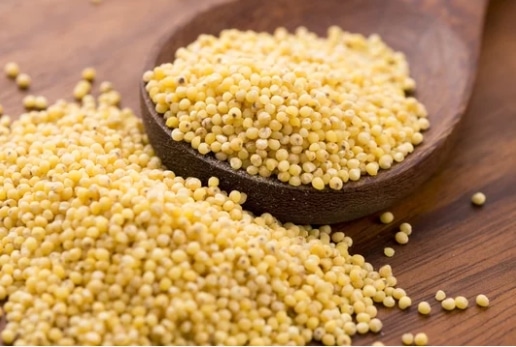Millet, also known as joro in the Hausa language, is sorghum with a lot of uses. It is eaten as a staple food and is used in the production of beer, bread and other snacks, cereals, and much more. The Hausas use it in making their famous kunu drink and also for making fura da nunu and akamu. Millet is very popular in Africa and Asia where it has been cultivated for thousands of years but it has now made its way to other parts of the world.
Millet is very great because of how much flavour it brings to whatever it is added in. It also has a lot of health benefits that make it worth adding to your diet. Unlike other grains, millet has a lot of nutrients. The nutritional profile of millet includes; calcium, potassium, iron, magnesium, fibre, and lots more, making it a very healthy food. [1]
As you can already tell, millet has a lot of immense benefits, some of which we would be looking at in this post.
Health Benefits of Millet (Joro)

The following are some of the health benefits of joro or millet.
1. Millet Aids Digestion
Millet has a high content of dietary fibre which aids digestion, as it eases bowel movement, preventing constipation and gastrointestinal issues. It also increases the bulk of stool, making it easier for you to pass out waste. Adding millet to your diet would improve your gut and digestive health. Millet is also one of the Nigerian gluten-free foods you can eat if you have celiac disease or follow a gluten-free diet. [2] [3]
2. Millet Controls Blood Sugar
Another good thing about millet is that it controls blood sugar levels. It is gluten-free and has less a lot of complex carbohydrates. What this means is that millet takes longer to digest. It is also a low glycemic index food which makes it great for people with diabetes as it does not cause an immediate rise in blood sugar levels after eating it. [4]
3. Millet Protects The Heart
Millet is also worth including in your diet because it protects the heart by reducing bad cholesterol levels. It has soluble fibre which forms like gel and absorbs cholesterol and other unhealthy fats in the body. In the same way, it also promotes the work of good cholesterol. It also has magnesium which reduces the risks of heart attacks and stroke. [5]
4. Millet Helps With Weight Loss
One good thing about eating millet is that it fills you up for a long time as the carbohydrates in it take a long time to digest and break down. This allows you to remain full for a longer time, meaning you would be eating less. This can help with weight loss as you would reduce the rate at which you eat. This also makes it a great meal for anyone with unhealthy eating habits, particularly those who eat junk in between meals.
5. Millet Is Rich In Antioxidants
Another thing you can enjoy about millets is the fact that it is rich in antioxidants which get rid of toxins in the body. it contains a class of flavonoids known as catechins which help to remove toxins from the body through proper excretion. [6]
Bottom Line
Making millet a steady part of your diet is something you should consider, particularly if you are diabetic or you are looking to reduce your weight. It is advisable to consume soaked or sprouted millet.
ALSO READ:
- 10 Powerful Health Benefits of Ukwa
- 10 Intruiging Health Benefits of Garden Egg
- 7 Potent Health Benefits of Nigerian Pear (Ube)
- 6 Awesome Health Benefits of African Velvet Tamarind (Icheku)
- 5 Marvellous Health Benefits of Uziza Leaves and Seeds
Collins Nwokolo is a human physiologist, writer and health enthusiast. He loves writing helpful articles on health and fitness, which he enjoys sharing with everyone.





